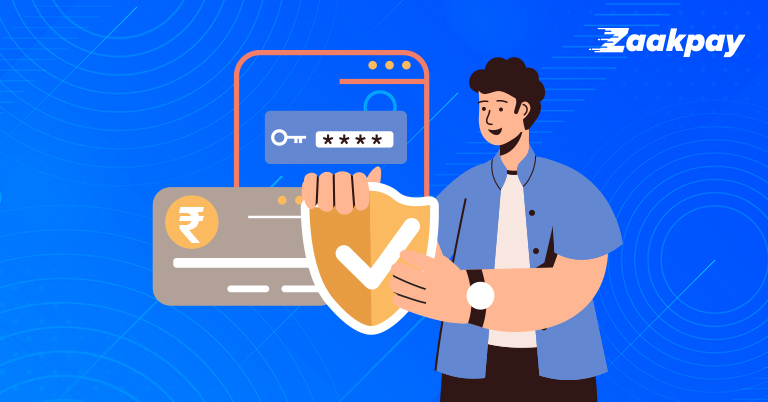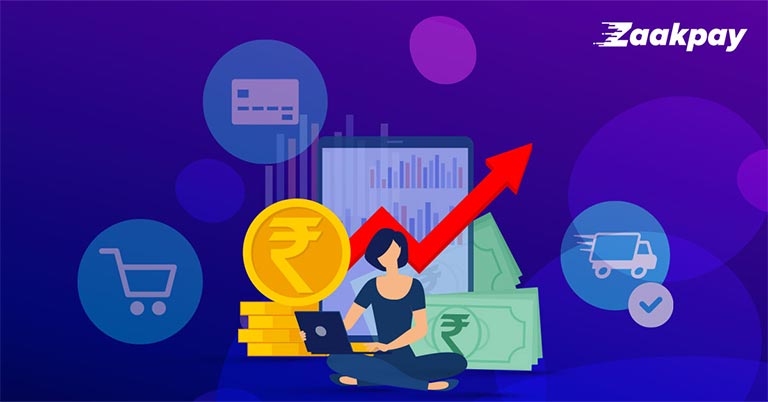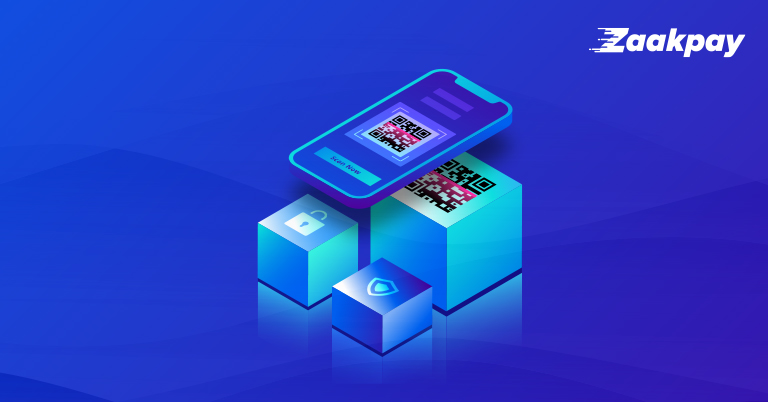Payment tokenization is an online payment system technique that replaces sensitive information with tokens using a unique security key while retaining all the information. A token is a random string made up of random characters. A key has to be used to retrieve the actual data from the auto-generated token. Access to this key is extremely restricted, which makes online payment highly safe and secure.
Data security is a major concern in the predominantly online world. According to a report, more than 50,000 cybercrime cases were reported in India in 2020. With massive volumes of online payments regularly, it is pertinent for businesses to offer cyber protection to their customers.
How Does Tokenization Work?
Tokenization is a simple step of masquerading the actual payment information in the form of strings. Here is a brief explanation:
- The cardholder enters the payment information in the gateway
- Sensitive payment information is replaced with tokens, generally by the payment gateway
- The tokens are then sent to the merchants’ network instead of the actual details
- The network securely processes the payment using the tokens without using the actual information, which is not moved past the secure payment gateway.
Why is Payment Tokenization Important for Merchants?
Providing a secure payment environment is the aim of any online payment gateway. It must be a priority to minimize this risk of cyberattacks as much as possible. This is because the future of the business depends on its ability to protect customers. If the customers feel unsafe providing their payment information to the business, they will abandon the cart. As a result, the business would lose out on sales.
The consequences could be worse for the business if customers purchase from them and their data gets compromised. Not using a secure payment gateway could very much lead to this. The business won’t just lose out on customers but could also face legal complications. Not to mention the goodwill of the company that would take a fatal blow as a consequence.
Merchants can get tokenization-supported gateways for reasonably affordable payment gateway charges. Zaakpay is a prominent name among gateway services that offer maximum security through techniques like tokenization.
Impact of Tokenization on Online Businesses
- Safe Transmission: Data theft can also occur while the information is being transmitted between the online payment gateway and the database on the server. With tokenization, the transmission becomes more secure.
- Safer Information Storage: The best online payment gateways use tokenization to store the customer’s sensitive payment information. With that, they can avoid storing the actual information in the database and replace them with tokens.
- Protection against data breach: Even if somebody hacks into the database of the online payment system, the person would be left with a bunch of random strings and not usable payment information. The tokens would be of no use to them. This safeguards businesses against data breaches and attacks.
Impact of Tokenization on Customers
Tokenization makes customers feel secure. It assures them that it is safe to type in their payment information into the India payment gateway. Since the information is key to all the funds stored in their account, customers can get anxious about the purchase if it seems risky. With minimal chances of fraud, they can trust the process without any second thoughts.
Additionally, the tokenization key used by different payment collection systems is different. This essentially means that there would be different tokens for the same card information stored in different servers. Even if one of the servers gets compromised, it is impossible to decipher the actual payment information from the token. Neither can the token be used to trace where else the same payment mode has been used.
Benefits of Payment Tokenization
Increased security
Best payment gateway services lay extra emphasis on security. Tokenization hides the actual payment information from even the applications involved in the payment process. This adds another layer of protection, thereby reducing the vulnerability of the transaction. Payment collection, as a result, becomes more reliable.
Cost savings
There are several security-enhancing software available in the market to protect online payment services. AVS, Firewall, and Payment blocking mechanisms are just a few of such names. However, they have to be integrated separately and add up on the business expenditure. Tokenization, on the other hand, is much more economical yet practical. By relying on tokenization, the business can avoid spending on external fraud protection systems. The business also successfully avoids any legal charges that they may have to face upon a data breach. The payment gateway charges for services that support tokenization are affordable to most merchants.
Enhanced user experience
Customer retention is proportional to their experience. Tokenization can enhance customer experience by making them feel safe. The best online payment gateways implement tokenization and let their customers know that they are in safe hands. Saving payment information for future purchases is also possible due to tokenization. Servers can store the credentials securely only because tokenization exists. This further enhances the user experience by reducing unnecessary effort in entering the same detail multiple times. In India, payment gateway service Zaakpay implements this well.
The Takeaway
It is not recommended for any business to take the safety of its customers for granted. Businesses must opt for the best payment gateway services that offer absolute protection for all transactions. Among the several names in the category, Zaakpay stands out due to its security features like tokenizing, two-factor authentication, and OTP verification. In fact, its latest technology can combat all types of cyber-attacks. India payment gateway services other than Zaakpay do not usually offer such difficult-to-break technology at an affordable price point.
Follow Us on:

